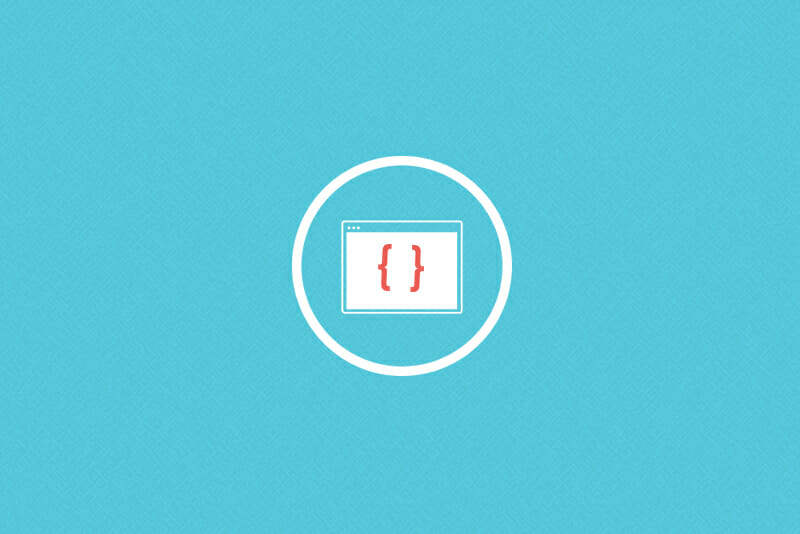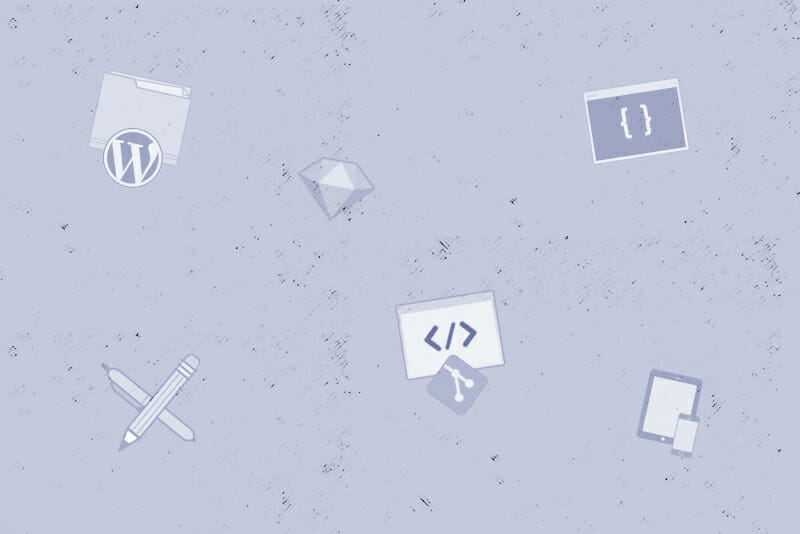How to Become a Full Stack Developer in 2024: A Definitive Guide
Go full stack in three months.

So you’re considering learning web development skills and you’ve heard that becoming a full stack developer is the way to go. That’s very savvy, considering full stack developers have both the front end and back end development skills most tech teams need to build web applications. The question is: how to become a full stack developer?
Becoming a full stack developer means being well-versed in back end processes — like working with databases, such as MongoDB (part of the MERN technology stack) and MySQL, using open-source server environments like Node.js, calling APIs, and other server-side functionalities — as well as front end languages and libraries, such as HTML, CSS, and JavaScript and its frameworks and libraries, including Angular and React.
A software developer with both front end and back end development know-how can apply for software engineering jobs and web development jobs alike — or land a gig doing full stack web development.
How long does it take to become a full stack developer? The answer is, as little as 90 days if you can learn full-time, and longer if you’re doing tutorials or coding bootcamps part-time.
This guide will help you plan a full stack web developer career roadmap, point you toward the web development skills you need, and help you land a full stack developer job.
Table of Contents: How Can I Become a Full-Stack Developer in 3 Months?
- What Does a Full Stack Developer Do?
- Decide if Becoming a Full Stack is Right For You
- Find Your Front End and Back End Skill Gaps
- Learn the Programming Languages and Web Skills You Need To Become a Full Stack Developer
- Build Your Web Developer Portfolio
- Find Full Stack Developer Jobs
- Ace Your Web Developer Interview

How Can I Become a Full Stack Developer in 3 Months?
1. What Does a Full Stack Developer Do?
Before you jump into learning full stack development skills from a coding bootcamp or a series of tutorials, let’s be clear on what a full stack developer actually does.
Full stack developers are developers who work with both the front and back end technologies of a website or web application. They’re familiar with HTML, CSS, JavaScript, and one or more back end languages, for example, Ruby on Rails. Hence the term “full stack” — they’ve got all of the web development skills to build web pages, websites, and web apps from start to finish.
Here are some other common questions about full stack (just to get this out of the way!) before we dive into our 90-day plan:
Is a full stack developer different from a software engineer or software developer?
Yes and no. The title “full stack developer” describes a programmer who’s qualified to work on both the “front end” (stuff users see on their screen) and “back end” (the stuff behind the scenes) of websites and mobile applications (e.g., Android, iOS, etc.). This means full stack developers working on apps can also be considered software engineers.
The title “software engineer” simply describes a programmer who works on some aspect of building a software program, meaning, not all software engineers are full stack developers.
What’s the difference between a full stack developer and a full stack engineer?
This one’s easy! Full stack developers are web or app developers who can work on all parts (front end and back end) of a web development project. Full stack engineers are usually more senior full stack developer roles that combine development know-how with skills like project management and DevOps.
What is an average full stack developer salary?
In the 2023 Stack Overflow survey, the average full stack developer salary in the United States was $140,000 per year. Like most things tech-related, having more skills (being able to work on all aspects of a development project) means being able to pay more bills.
I heard it’s a bad idea to try to become a full stack web developer. True or false?
This debate rages on. Within the web development community, depending on who you ask, you’ll get two very different answers.
At Skillcrush, we tend to recommend that someone new to tech start by focusing on front end web development rather than trying to learn all of the full stack skills at once. In our experience, it’s very hard to put the time into learning tech skills if you’re bouncing around between too many lessons.
Still, there’s a reason why full stack developer salaries are so lucrative. Some of us also really love adding skills to our arsenals. So maybe the better question is: Is full stack development right for you?
2. Decide Whether Full Stack Web Development is Right for You
You may have heard whisperings that full stack developers aren’t necessarily beloved. There’s a pretty large divide between people who think of full stack developers as the famed unicorns of the tech world and those who feel like they’re spreading themselves too thin. Here’s a quick breakdown of the pros and cons of full stack development.
Pros of Going Full Stack Developer
- Can work more easily on small teams or tech startups where there are fewer developer jobs to go around
- Full stack developers know how to communicate with both front end developers and back end developers, helping cut down on lots of confusion
- They can solve all problems at once—not just surface-level development needs
Cons of Becoming a Full Stack Developer
- The biggest argument against full stack (we think) is this: If you’re not specialized, is the quality of your code ever going to be as good as it could be?
- It’s hard to prioritize projects
- You may find that companies that hire you for both front end and back end development expect you to do more work than you can complete in a 40-hour workweek (i.e. the cutting corners approach to a web development budget).
3. Find Your Front End and Back End Web Development Skills Gaps
If you don’t have any web development skills, start by learning the ones that will land you a front end developer job. They are:
Essential Front End Developer Skills
- JavaScript libraries and frameworks (jQuery, React JS)
- Responsive/Mobile design
- Version control/Git
Programming Languages Front End Developers Need to Know
If you’re already well-versed in front end web development and are determined to go full stack, these are the back end developer skills you’ll want to start learning next.
Essential Back End Developer Skills
- API architectures (REST/SOAP)
- Database management
- General understanding of front end technologies (for cross-team communication)
Programming Languages Back End Developers Need to Know
P.S. Did you know we teach back end web development, too?

🐍Wondering what backend language to learn? All things being equal, we’d recommend Python! It’s growing fast AND it’s the language used for all things AI.
4. Learn the Necessary Programming Languages and Web Development Skills to Become a Full Stack Developer
Now that you know which skills you need to learn, it’s time to set about learning them — within the next 90 days.
That may sound like very little time, but here’s the beauty of becoming a full stack developer (or becoming any sort of software developer or engineer, really): You can start applying for jobs before you’ve finished learning all of the skills. In fact, you can even find your first client as soon as you enroll in a web development course or tutorial by using their project as your class project.
Our Skillcrush courses are set up so that learning the skills you need to become a web developer can happen in 90 days or less if you study on a full-time schedule, but will take longer on a part-time schedule. That means you could have a new full stack developer job before this season’s over.
Here are some of the best places to learn the necessary full stack skills:
The Best Courses for Full Stack Developers
- Skillcrush’s Web Developer, Front End Development or Break Into Tech course package
- Coursera’s Full-Stack Web Development with React Specialization
- Udacity’s Full Stack Developer Nanodegree Certification
- Udemy’s Beginner Full Stack Web Development: HTML, CSS, React & Node
Free Front End and Back End Web Development Courses
If you want to launch a full stack software developer career, investing in a high-quality course is worth it. But if you’re still not sure whether you even want to become a full stack engineer or don’t want to commit to a coding bootcamp, you can start by trying out some free courses, tutorials, and resources. Here are just a few:
- Skillcrush’s free Coding Camp
- Our roundup of Free Resources to Learn to Code Online
- EdX and Udemy’s free courses
5. Build Up a Web Development Portfolio
Every web developer and engineer—front end, back end, full stack, haystack (heh.)—needs an online portfolio that showcases their work. Make sure to update it with your strongest projects before you start applying. If you’re new to learning front end development and/or back end development, you can add mock projects to your portfolio based on the work you’re doing in your courses. All good code — whether for clients or fun — counts.
6. Find Full Stack Developer Jobs
There are lots of great job boards out there specifically for full stack development roles, but you can also search general job boards for common full stack developer job titles. (Use our list below!) And if it’s a remote job you’re after, check out our roundup of flexible job boards here.
Best Job Boards for Full Stack Developers
Common Full Stack Web Developer Job Titles
Plug these common titles into your job searches to find some openings that require full stack web development skills. And don’t forget to read job descriptions closely — sometimes a job title may not seem like a full stack role, but when you really scrutinize the listing, it is.
- Junior Full Stack Developer
- Full Stack Developer
- Full Stack Engineer
- Software Development Engineer
- Full Stack Software Engineer
- API Engineer
7. Ace Your Web Developer Interview
Regardless of whether you’re attempting to land clients as a freelance full stack developer or you’re seeking a full-time full stack developer job, there are some best practices when it comes to interviewing.
1. Come prepared to answer technical job interview questions
Technical job interview questions function slightly differently than some of the interview questions you may have answered in the past. The best way to prepare for them is to practice via mock interviews. Here’s a list of technical questions to get you started, as well as some of the most common front end development interview questions.
2. Even if your goal is a full stack web developer job, come prepared to talk about your specialties
Yes, the beauty of full stack developers is that they can handle so many elements of the development process. But everyone has her strengths, interests, and specialties.
Chances are your interviewer will ask you whether you prefer front end web development or back end development. Don’t be afraid to share with them your favorite elements about both sides of the role, and how you particularly excel in one versus the other.
3. Bring a laptop or iPad to show off your portfolio
When it comes to landing web development jobs, your portfolio is essential — possibly more so than even your resume. Make sure yours includes clear examples of both your back end web development/engineering work as well as your front end development experience. (Here are some of the best web developer portfolios for inspiration and our guide to creating an online portfolio as well.)
4. Expect a whiteboard and/or custom project
Though not as common these days, there are still companies that will ask you to whiteboard during your interview to show just how well you know how to code. Make sure you’re prepared for that (here are some of our best tips on whiteboarding).
Also likely if you advance to the final interview round: a custom project. Make sure you dedicate time and energy to completing it, including checking your work right down to the spelling and grammar of your submission (yes, even if you’re not a writer)




